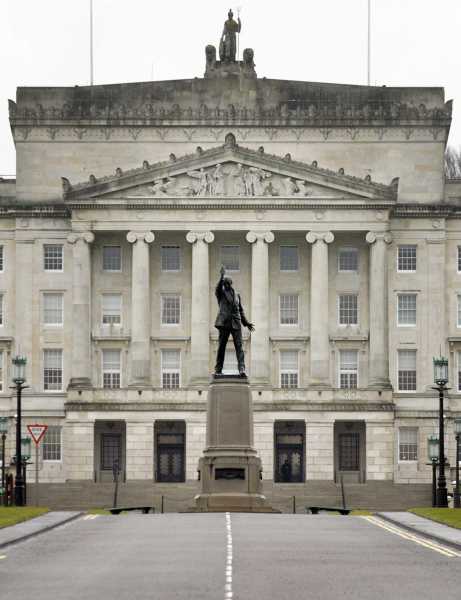12 November 2015
British and Irish state interests are blocking Stormont negotiations progress

THE Stormont negotiations have entered a critical and decisive phase.
Three things are happening:-
Significant progress has been made among the Executive parties towards achieving agreement on all the issues under discussion.
The British and Irish governments have played a negative and obstructive role, particularly during the last week. Arguably, one of their objectives has been to unravel the unity of purpose among the local parties. This is an attempt to gain acquiescence in the face of both governments’ refusal to recognise the ‘special circumstances’ of the North and lift Britain’s block on disclosure of the truth. The failure by each government to step up to the mark thereby frustrating the efforts of local parties to secure a final agreement has become a huge problem.
The Ulster Unionist Party – having walked out of the Executive and deepened the contrived political crisis – is poised to oppose any potential or emergent agreement. This party’s entire approach is motivated by an aggressive, negative electoral strategy to the exclusion of the interests of wider society. That dynamic and the prospect of a May Assembly election is pushing the UUP inexorably on to the extreme edge of political unionism.
Very significant ideological and political objectives and state interests are defining the British approach to the negotiations.
The Conservatives are locked into an austerity agenda designed to dismantle the welfare state completely and change the economic system in Britain by using inequality, deregulation and increased privatisation as forms of social control.
That plan also extends to the North.
The refusal by the British Government (and the Irish Government) to recognise and properly address the special circumstances of the North has absolutely nothing to do with finance – it is ideologically based.
The influence of Britain’s military establishment and security and intelligence agencies is the major factor in reinforcing the Westminster Government’s intransigence against revealing the truth about its role in the conflict.
They are absolutely hostile to Sinn Féin being in government in the North and share with the Southern political establishment an opposition to the continued electoral rise of Sinn Féin in the 26 Counties.

This fact sits in context with the direct interference in the democratic process last Sunday by British Army General Nicholas Houghton, Chief of the Defence Staff (pictured, right), when he politically challenged newly-elected Labour Party leader Jeremy Corbyn’s opposition to Britain’s nuclear arsenal.
The Conservatives are attempting to create a political hegemony based on austerity, political authoritarianism and an increased role for security and defence.
Set alongside that, the Irish Government has chosen to play a subservient role by aiding and abetting the primacy of these British state interests within this negotiation. The role played by it has been irresponsible and disgraceful.
The Fine Gael/Labour coalition has allowed narrow electoral self -interests to compromise the Irish Government’s responsiblity to act as co-guarantor for the peace and political processes and to protect Irish national democracy.
All of this brings sharply into focus the question of whether the two governments are indeed serious about contributing to a political agreement supported by the required financial uplift to guarantee political and economic stability in the North.
The two governments are only interested in achieving an agreement on their terms. That is why they have intervened to slow down the momentum of the negotiation process.
In effect, political progress is now being held hostage to British national security and austerity policies.
The status quo is unsustainable.
The North is a society emerging from conflict which requires investment to grow the economy and place it on a sustainable trajectory to tackle inequality and division and to promote reconciliation.
There is widespread consensus across civic society that special circumstances exist in the Six Counties arising directly from the legacy of the conflict and partition and which must be addressed.
Conservative ideology, British military and security interests, and the partisan electoral goals of 26-County politcal parties are actively blocking the ability of these negotiations to make progress. This represents a subversion of the democratic process.
The future viability of the political institutions are dependent on a comprehensive political agreement.
That is still possible – but the negative and divisive approach of the British and Irish governments must end immediately. ◼︎
Follow us on Facebook
An Phoblacht on Twitter
Uncomfortable Conversations

An initiative for dialogue
for reconciliation
— — — — — — —
Contributions from key figures in the churches, academia and wider civic society as well as senior republican figures





